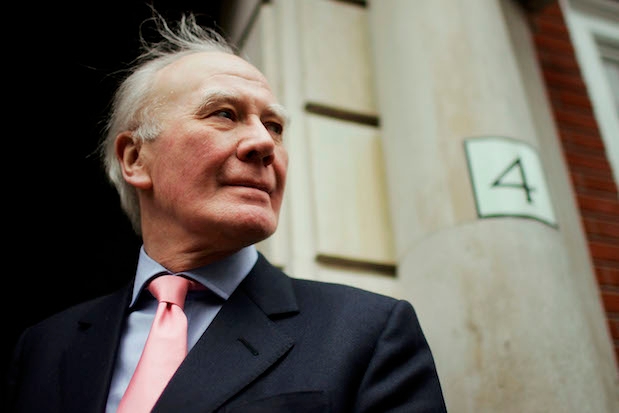The independence campaign could be over now. The Yes campaign could be all but destroyed with six months to go before the vote. The unionists have it within their power to do this, yet they choose not to do so for the simple – and apparently intractable – reason of narrow party politics.
This morning the Lib Dem grandee Sir Menzies Campbell will unveil plans to try to forge ‘common ground’ between the three unionist parties on more powers for the Scottish Parliament. Sir Ming knows that if he can get Labour and the Tories to agree with him, then a tri-party agreement on more powers will effectively kill off the nationalist threat then and there.
Just look at the results of the TNS poll commissioned by Sir Tom Hunter earlier this year. Voters were asked to choose between three options: the status quo (which attracted 31 per cent support), full independence (24 per cent) and more powers for the parliament (35 per cent). The poll showed what has been the accepted wisdom for some time in Scotland: some form of ‘devo plus’ or ‘devo max’ is the best supported option in Scotland. That is what Scots want.
Yes, there is a hard core – about a quarter – of Scots who want full independence but, really, most would be happy to stay within the UK, keep the pound and everything that helps them along but have more power of tax powers and, possibly, welfare.
That’s it. It really is as simple as that. Scots want more powers for Holyrood but not full independence, yet that is the one option that is not on the ballot paper for September. Sir Ming realises this. That’s why he believes the three main unionist parties should come together and agree a common platform for more powers, setting out which ones they all agree should be transferred north.
The belief is that, if the unionist parties did that, it would effectively put devo plus on the ballot paper. Scots would be able to vote Yes for full independence or No for the Union but with more powers for Holyrood.
But Sir Ming also knows he is likely to be thwarted in his attempts to get that agreement simply because Labour politicians want to drag their feet for party political reasons. Prof John Curtice put it well on the BBC’s Sunday Politics programme yesterday when he said:
‘I think there is a feeling inside the Labour Party that they want to feel ownership of more devolution… The trouble is all three parties are not just fighting for the referendum, they are positioning themselves ahead of the 2015 and 2016 elections and that does not encourage cooperation.’
This is the rub. If the unionist parties really wanted to win the referendum and win it decisively, they would not only bury their party-political animosities and agree a broad platform for more powers but they would offer a clear guarantee that these powers would be central to their manifestos for the 2015 General Election.
It is not as if they don’t agree on the main thrusts of the policy debate. All the three main parties seem to back the devolution of income tax to the Scottish Parliament and air passenger duty, they also agree on the transfer of other rights and responsibilities, including the right of the Scottish Parliament to control its own elections. There are disagreements over welfare and corporation tax but these could easily be left outside any agreement.
The parties could all put their proposals on the table and where there is agreement – like the overlapping areas in a Venn diagram – this could become the basis for a cast-iron promise to Scots. That would persuade many wavering Scots that they would actually get what they want, a continued place within the UK but with more autonomy, more control over domestic affairs but not outright independence.
Ming realises how this could transform the campaign. It just seems a pity that his Labour rivals are so locked into their own partisan battles (and its desperate desire not to be seen to be working with the Tories) that they cannot see it too.
Gordon Brown’s intervention today has to be seen in this context.
With his party arguing over how many tax powers to transfer (and the Scottish leadership look set to win this argument and back the wholesale transfer of income tax to Scotland), his remarks seem a bit so-whatish. The former Prime Minister’s proposals would see Holyrood granted a load of symbolic new powers – the Scottish Parliament couldn’t just be abolished on the whim of Westminster for example – but most of these are hardly necessary.
What Scots need to know is exactly what actual powers would be transferred in the event of a No vote. That is what is important, not just a symbolic right to more powers, which Mr Brown seems to be suggesting.
And, as the Nats pointed out quite pertinently this morning, if Mr Brown feels so strongly on this issue, why on earth didn’t he do anything about it when he was Prime Minister?






Comments